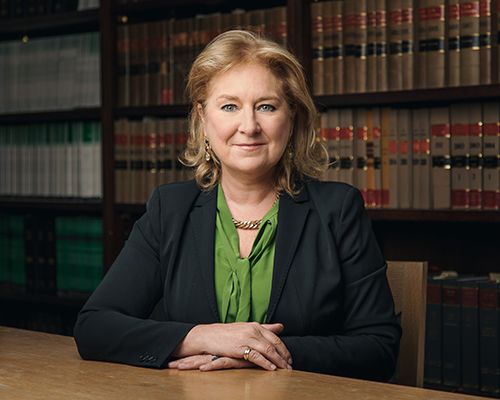
A RENOWNED experienced lawyer in the UK, Dame Sue Lascelles Carr, 58, has been appointed as the country’s first female chief justice.
This has ended a 755-year wait for a female to hold the position.
In October 2023, Lord Burnett will be replaced in the position by Lady Justice of Appeal, Dame Sue Carr.
She will assume the role just 20 years after taking silk in 2003, having become a High Court judge a decade ago.
Carr has a strong legal background and was admitted to the bar in 1987 as a lawyer. She has experience in a variety of legal roles, including working at The Hague’s International Criminal Court.
She was assigned to the appeals court in 2020, where she has since worked.
While males make up two-thirds of judges and racial and ethnic minorities are underrepresented, Carr’s appointment as Lord Chief Justice is part of the UK government’s efforts to improve gender balance in high-ranking legal posts.
This important appointment represents a turning moment in the judiciary’s long history, which dates back to the 13th century.
Although the UK Supreme Court was established in 2009, the Lord Chief Justice’s position still entails managing the judicial system in England and Wales (Scotland has a different legal system).
She was chosen based on the recommendations of a selection committee that includes Helen Pitcher, chair of the JAC, Supreme Court justice Lord Lloyd-Jones, Lord Justice Edis, and two other JAC members.
The Lord Chancellor, Alex Chalk KC, and the chair of the Bar Council, Nick Vineall KC, welcomed her appointment.
Vineall said: “We very much look forward to working with her on the many challenges facing the courts and wider justice sector,” while thanking Burnett, who will retire in September, “for his close engagement with the Bar throughout his tenure.”
Law Society president Lubna Shuja said: “This is a historic moment, and I hope it will lead to further progress on women’s representation within the judiciary.”
She added: “Only around a third of judges in our courts are women, with even fewer in the senior judiciary. We need to see this improve. This momentous appointment is a sign that times are changing.”
Carr would be anticipated to hold the position for at least four years during which she will oversee the continuing modernisation of the courts, a process that has been slowed down by the Covid-19 outbreak.
Cambridge alumnus Carr is married and has three children.
She has a strong enthusiasm for music outside of her legal work and actively participates in a lawyers’ choir, showcasing her singing talents. Carr is also skilled in playing the piano.